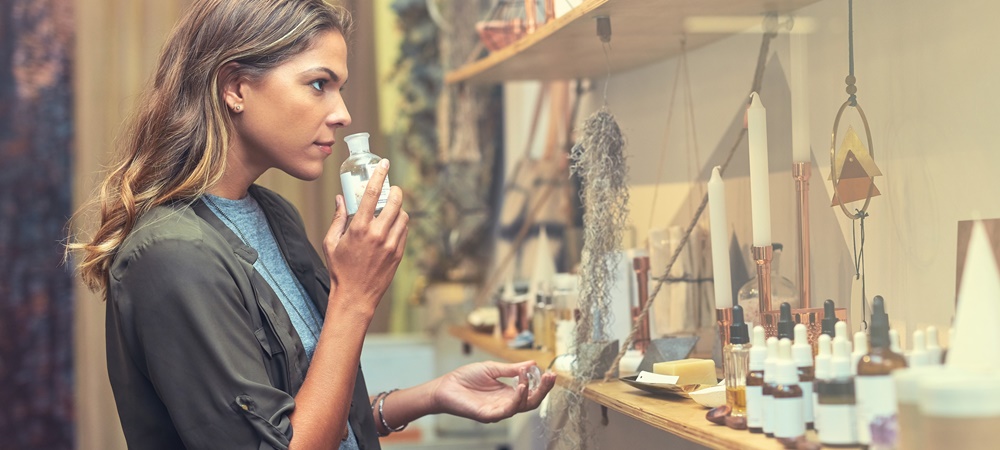Step into most retail chains and chances are you’ll get a whiff of a certain something. Shoppers in Country Road are treated to a fig fragrance while those in MJ Bale will sniff out a juniper berry scent. And visitors to Bunnings on a Saturday morning are guaranteed to be greeted with the delicious fragrance of a few dozen sausages cooking on a barbecue.
All this to say: what your store smells like is important. So important that an entire industry exists to develop the perfect fragrance that will represent your brand, create emotional connections with your shoppers and hopefully keep them in-store longer.
“The reason retailers approach us is that with online shopping so popular, the in-store experience is becoming even more important,” Andrew O’Keefe of Scent Australia told Retailbiz.
“They need to make sure the experience is incredible. Otherwise you’re going to lose the battle with online shopping.”
While in the past retailers have focused on the visual impact of their store experience, O’Keefe said other senses are now coming into play.
“You need a focus on things like sound, the feel when you try an item on, and making the store smell incredible. For marketers scent is another arrow in their quiver.”
It makes scents
Research by Nobel Prize winners Richard Axel and Linda B Buck showed that specific odours “can trigger distinct memories from our childhood or from emotional moments—positive or negative—later in life”.
This emotional response that what makes scent so important in a retail setting. If you can get straight to your customers’ emotions you can create a positive association with your store.
“There’s a part of your brain that scent goes straight to, it doesn’t go through the logical part of the brain,” explained O’Keefe. “You are instantly emotionally connected.
“Research shows different fragrances evoke different emotions. We match those fragrances with what the brand is trying to communicate… It’s a bit of science and a bit of art.”
A citrus fragrance, for example, can be uplifting while a casino might opt for an invigorating scent like peppermint to keep punters alert.
Although it’s mainly larger retail chains that are able to spend money on scent marketing, O’Keefe said it is just as important for smaller stores.
“Size doesn’t matter, everyone can benefit from it. You’re just trying to improve the ambiance within your store.”
Decide how you would like customers to feel while in your store and seek out a scent that reflects this.
Don’t come on too strong
According to O’Keefe one of the worst—and most common—mistakes retailers make when it comes to in-store scent is coming on too strong.
“One major mistake retailers make with fragrance is they make it too strong,” he said. “Make sure you always err on the side of being too light versus too heavy.
“If people want more of the fragrance that’s a good thing, it’s not good if they’re grossed out by it. Using scent is about creating a positive connection.”
American fashion brand Abercrombie and Fitch is a serial offender when it comes to strong in-store scenting. The retailer, known for dim store lighting and loud music, faced problems in 2010 when a student group protested against the brand pumping its signature scent ‘Fierce’ (also available to purchase as a cologne) through its stores’ ventilation systems.
Other mistakes include using a fragrance that doesn’t match your brand and having broken equipment, which means the scent isn’t dispersed through your store.
To combat this, O’Keefe suggests having multiple people involved in the fragrance selection. “All too often I hear stories where someone is in charge and wants the oddest perfume because they like it,” he said.
“They might like it but it doesn’t necessarily match the brand.”
The smell of success
For retailers that manage to nail their in-store scent, other “scented brand extensions” are available so customers can take the fragrance home.
“We do candles, room sprays, cosmetics—anything you can imagine,” said O’Keefe.
“This can be really powerful. If you have a beautiful candle in your home, when you light it and it burns, you’re reminded of the experience you had in-store. That’s a more powerful advertising medium than running a TV ad or handing out a brochure.”
Want the latest retail news delivered straight to your inbox? Click here to sign up to the retailbiz newsletter.

